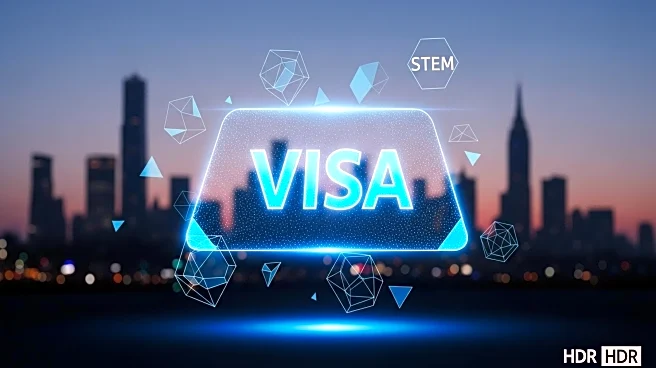What's Happening?
President Trump has announced a significant increase in fees for the H-1B visa program, which is used by U.S. companies to hire foreign scientists and engineers. The new fee, set at $100,000 per visa, aims to reduce reliance on foreign workers and encourage domestic talent in science and technology fields. The administration also plans to prioritize higher-paid applicants in the visa lottery process. The changes could affect universities and research organizations that use H-1B visas, though exemptions may be granted under a 'national interest' clause.
Why It's Important?
The proposed fee increase could have substantial implications for U.S. industries reliant on foreign STEM talent, potentially leading to a shortage of skilled workers. Companies may face higher costs and challenges in recruiting international experts, impacting innovation and competitiveness. The policy shift reflects broader immigration and labor market strategies under the Trump administration, emphasizing domestic employment and national security concerns.
What's Next?
Legal challenges to the fee increase are anticipated, as stakeholders assess the impact on their operations. Universities and research institutions may seek clarification on exemptions and adjust their recruitment strategies accordingly. The Department of Homeland Security's proposed rule changes for student visas could further complicate the landscape for international talent in the U.S.









